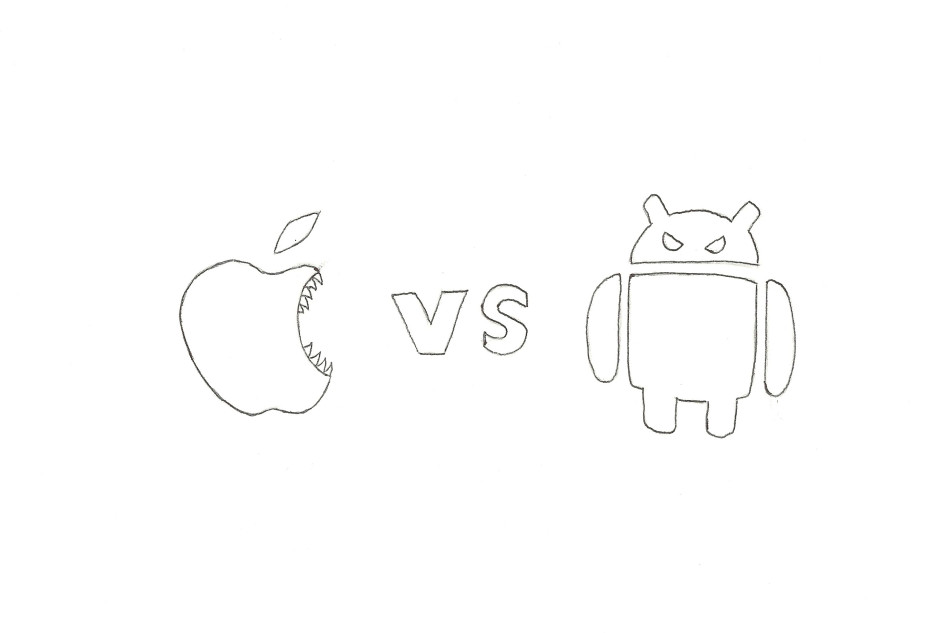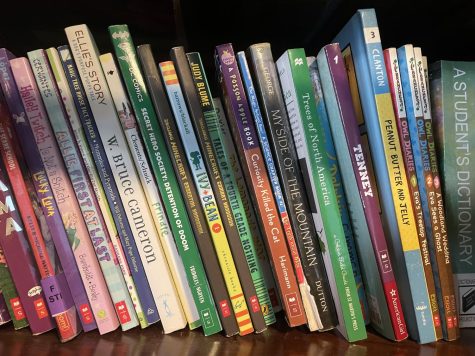iPhone vs. Android
Both iPhones and Androids have a lot of fancy hardware, but which device is better overall?
April 2, 2014
As I am lounging on my couch watching a popular show, it switches to a commercial, and the phone commercials start pouring one after the other. My mind is focused on what snack I am going to get next, not the persuasive advertising wanting me to buy their products. It seems as though the conflict between Apple and Android products are never ending and I have seen way too many competing commercials for them.
Regarding the popular Apple versus Android, I have watched three commercials in only one break; two for Apple iPhones, and one for Android Samsung Galaxy phones. I remember a lot of bashing of the other as they present their idea of the “perfect” cell phone. So what phone is better? Why is it so difficult when choosing a cellphone for yourself?
The popular Apple iPhone cannot compete with the newer and more common Android phone: the Samsung Galaxy S4. The Galaxy is complete with hand motions, that can ‘air jump’, which is scrolling through web pages and emails by moving the hand up and down above the sensor. The Galaxy also has ‘air browsing’ which allows one to move to the next or previous item by moving the hand left or right above the sensors; gallery, internet, my music, music on lockscreen, and S memo can all be used for ‘air browsing’, and finally, can ‘air-call accept’ which is waving the hand above the sensor to accept incoming calls.
The phone is finished off with a 13 megapixel camera (the best camera on the market) with voice commands that will activate taking a picture hand-free. The Google Play Application (the marketplace to purchase applications, music, books, etc.) on the Androids have 70 percent of their apps free, whereas Apple Store only offers 30 percent free.
However, the newest of the Apple products, the iPhone 5s does offer something Galaxy has not yet done. To unlock the phone, one can hold down the finger, or thumb, on the home button. The phone will recognize the fingerprint and the phone will unlock, not needing a passcode or pattern. This is the one feature I wish Android phones could offer.
The Android competes with the fingerprint unlock, by enabling hand motions to function many features including music, gallery, camera, internet web pages, S memos (which are the Samsungs notepad), messaging, quick glances, music on lockscreen, calendar, homescreen, applications, and air call-accept. Quick glances can be used when the device is on a flat surface facing upward and the screen is turned off. The user can move the hands above the sensor to display status information that the user can choose. The options include time & date, notification icons, missed calls, unread messages, battery power, or current music information. It will show up on the screen for about 10 seconds after a hand is waved over the sensor.
I prefer the Android products, being a happy owner of an Android Samsung Galaxy S4. As an Android supporter, I only see the imperfections of the Apple products. Apple products only offer one brand of cellphone, the iPhone. One would think since Apple only has one brand of phone to produce, all the glitches would be perfected. However, it is not so. Many people have made the switch from an Apple owner, to a proud Android owner.
iPhone’s freeze, and after using the lock button multiple times, it will get stuck and will no longer be able to lock the phone with the button, take screenshots, or power off. In order to do so, it would need to have the accessible widget on the phone to use the lock button as a touch button on the iPhone homescreen.
The Android and Apple phones have many common features, and are both over-all great phones. I prefer Android because I find their phones to have more features I use. I find both phones simple to use and understand.
Aside from all of this, iPhones and Android phones are similar. They both have features that make the devices stand out to make the phones more popular than most. I think it depends on the type of person and their personal preferences to choose between the common Android or Apple phones, and what technology they like to use best.













